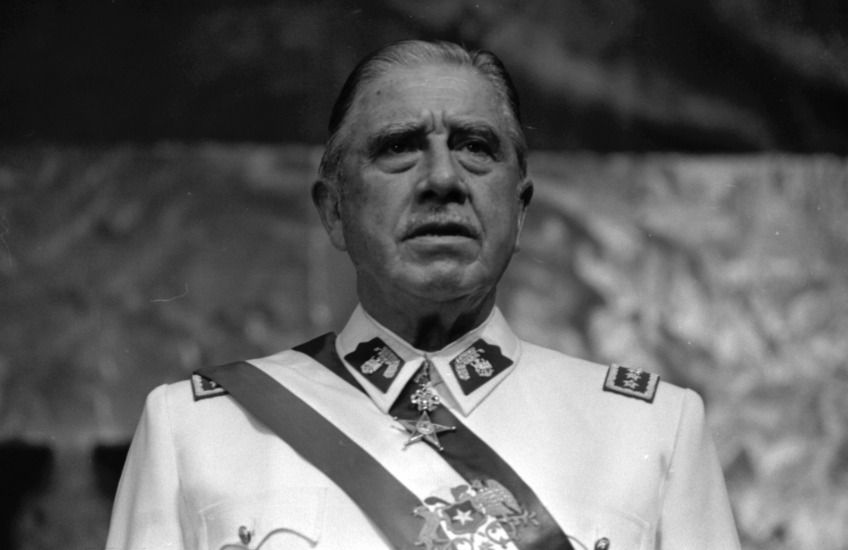Augusto Pinochet (1915-2006) – Chileens dictator
Augusto Pinochet was a Chilean dictator who ruled the country from 1973 to 1990. He was born in 1915 in Valparaiso, Chile, and began his military career at the age of 18. Pinochet rose through the ranks of the Chilean army and became the Commander-in-Chief in 1973. He took power in a coup that overthrew the democratically elected government of Salvador Allende.
Pinochet’s regime was marked by human rights abuses, including torture, disappearances, and executions. His government was responsible for the deaths of over 3,000 people and the imprisonment of tens of thousands of others. Pinochet was also known for his economic policies, which favored free-market capitalism and privatization.
In this article, we will take a closer look at the life and legacy of Augusto Pinochet.
Early Life and Military Career
Augusto Pinochet was born on November 25, 1915, in Valparaiso, Chile. He came from a middle-class family and was the son of a customs official. Pinochet attended military school in Santiago and graduated in 1936. He then joined the Chilean army as a second lieutenant.
Pinochet’s military career was marked by his loyalty to the government and his willingness to use force to maintain order. He was promoted to the rank of general in 1971 and became the Commander-in-Chief of the Chilean army in 1973.
Coup and Rise to Power
On September 11, 1973, Pinochet led a military coup that overthrew the democratically elected government of Salvador Allende. Allende was a socialist who had been elected president in 1970. Pinochet saw Allende as a threat to the country’s stability and believed that he was leading Chile down the road to communism.
After the coup, Pinochet declared himself the leader of Chile and established a military dictatorship. He suspended the constitution, dissolved Congress, and banned political parties. Pinochet’s regime was characterized by repression, censorship, and the use of violence to maintain order.
Human Rights Abuses
Pinochet’s regime was marked by human rights abuses, including torture, disappearances, and executions. The government was responsible for the deaths of over 3,000 people, and tens of thousands of others were imprisoned, tortured, or forced into exile. Many of these abuses were carried out by the National Intelligence Directorate (DINA), a secret police force that was established by Pinochet in 1974.
The human rights abuses committed by Pinochet’s regime were well-documented, and he was widely criticized by the international community. In 1998, Pinochet was arrested in London on charges of human rights abuses. He was released on medical grounds and returned to Chile, where he faced charges of human rights abuses and corruption.
Economic Policies
Pinochet’s economic policies were based on free-market capitalism and privatization. He believed that the state should play a limited role in the economy and that private enterprise should be encouraged. Pinochet’s economic policies led to the privatization of many state-owned companies, including the national airline and the telephone company.
Pinochet’s economic policies were controversial, and they led to significant inequality in Chile. While some sectors of the economy thrived under Pinochet’s regime, others suffered. The working class and the poor were particularly hard hit, and many Chileans saw their living standards decline during Pinochet’s rule.
Legacy
Augusto Pinochet’s legacy is a controversial one. Some Chileans view him as a hero who saved the country from communism and restored order to a chaotic situation. Others see him as a brutal dictator who committed human rights abuses and destroyed the country’s democratic institutions.
Pinochet died in 2006 at the age of 91. His death was marked by controversy, and his legacy continues to be debated in Chile and around the world.
Conclusion
Augusto Pinochet was a Chilean dictator who ruled the country for 17 years. His regime was marked by human rights abuses, including torture, disappearances, and executions. Pinochet’s economic policies favored free-market capitalism and privatization, but they led to significant inequality in Chile.
Pinochet’s legacy is a controversial one, and his rule continues to be debated in Chile and around the world.
FAQs
1. What was Augusto Pinochet’s economic policy?
Augusto Pinochet’s economic policies were based on free-market capitalism and privatization. He believed that the state should play a limited role in the economy and that private enterprise should be encouraged.
2. What was the National Intelligence Directorate (DINA)?
The National Intelligence Directorate (DINA) was a secret police force that was established by Pinochet in 1974. The DINA was responsible for many of the human rights abuses committed by Pinochet’s regime.
3. How many people died under Pinochet’s regime?
The government was responsible for the deaths of over 3,000 people, and tens of thousands of others were imprisoned, tortured, or forced into exile.
4. How did Pinochet come to power?
Pinochet led a military coup that overthrew the democratically elected government of Salvador Allende in 1973.
5. What is Pinochet’s legacy?
Pinochet’s legacy is a controversial one, and his rule continues to be debated in Chile and around the world. Some Chileans view him as a hero who saved the country from communism and restored order to a chaotic situation. Others see him as a brutal dictator who committed human rights abuses and destroyed the country’s democratic institutions.
